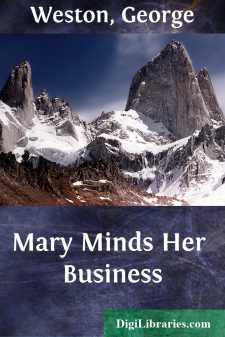Categories
- Antiques & Collectibles 13
- Architecture 36
- Art 48
- Bibles 22
- Biography & Autobiography 815
- Body, Mind & Spirit 144
- Business & Economics 28
- Children's Books 18
- Children's Fiction 14
- Computers 4
- Cooking 94
- Crafts & Hobbies 4
- Drama 346
- Education 58
- Family & Relationships 59
- Fiction 11834
- Games 19
- Gardening 17
- Health & Fitness 34
- History 1378
- House & Home 1
- Humor 147
- Juvenile Fiction 1873
- Juvenile Nonfiction 202
- Language Arts & Disciplines 89
- Law 16
- Literary Collections 686
- Literary Criticism 179
- Mathematics 13
- Medical 41
- Music 40
- Nature 179
- Non-Classifiable 1768
- Performing Arts 7
- Periodicals 1453
- Philosophy 65
- Photography 2
- Poetry 896
- Political Science 203
- Psychology 44
- Reference 154
- Religion 515
- Science 126
- Self-Help 85
- Social Science 83
- Sports & Recreation 34
- Study Aids 3
- Technology & Engineering 59
- Transportation 23
- Travel 463
- True Crime 29
Our website is made possible by displaying online advertisements to our visitors.
Please consider supporting us by disabling your ad blocker.
Mary Minds Her Business
by: George Weston
Description:
Excerpt
MARY MINDS HER BUSINESS
So that you may understand my heroine, I am going to write a preface and tell you about her forebears.
In the latter part of the seventeenth century, there was a young blacksmith in our part of the country named Josiah Spencer. He had a quick eye, a quick hand and a quicker temper.
Because of his quick eye he married a girl named Mary McMillan. Because of his quick hand, he was never in need of employment. And because of his quick temper, he left the place of his birth one day and travelled west until he came to a ford which crossed the Quinebaug River.
There, before the week was over, he had bought from Oeneko, the Indian chief, five hundred acres on each side of the river—land in those days being the cheapest known commodity. Hewing his own timber and making his own hardware, he soon built a shop of his own, and the ford being on the main road between Hartford and the Providence Plantations, it wasn't long before he had plenty of business.
Above the ford was a waterfall. Josiah put in a wheel, a grist mill and a saw mill.
By that time Mary, his wife, had presented him with one of the two greatest gifts that a woman can ever bestow, and presently a sign was painted over the shop:
JOSIAH SPENCER & SON
In course of time young Josiah made his first horse-shoe and old Josiah made his last.
On a visit to New Amsterdam, the young man had already fallen in love with a girl named Matilda Sturtevant. They were married in 1746 and had one of those round old-fashioned families when twelve children seemed to be the minimum and anything less created comment.
Two of the boys were later killed in the Revolution, another became Supreme Court justice, but the likeliest one succeeded to the business of Josiah Spencer & Son, which was then making a specialty of building wagons—and building them so well that the shop had to be increased in size again and again until it began to have the appearance of quite a respectable looking factory.
The third Spencer to own the business married a Yankee—Patience Babcock—but Patience's only son married a French-Canadian girl—for even then the Canadians were drifting down into our part of the country.
So by that time, as you can see—and this is an important part of my preface—the Spencer stock was a thrifty mixture of Yankee, Irish, Scotch, Dutch and French blood—although you would never have guessed it if you had simply seen the name of one Josiah Spencer following another as the owner of the Quinebaug Wagon Works.
In the same year that the fourth Josiah Spencer succeeded to the business, a bridge was built to take the place of the ford and the waterfall was fortified by a dam. By that time a regular little town had formed around the factory.
The town was called New Bethel.
It was at this stage of their history that the Spencers grew proud, making a hobby of their family tree and even possibly breathing a sigh over vanished coats-of-arms.
The fifth of the line, for instance, married a Miss Copleigh of Boston. He built a big house on Bradford Hill and brought her home in a tally-ho....


